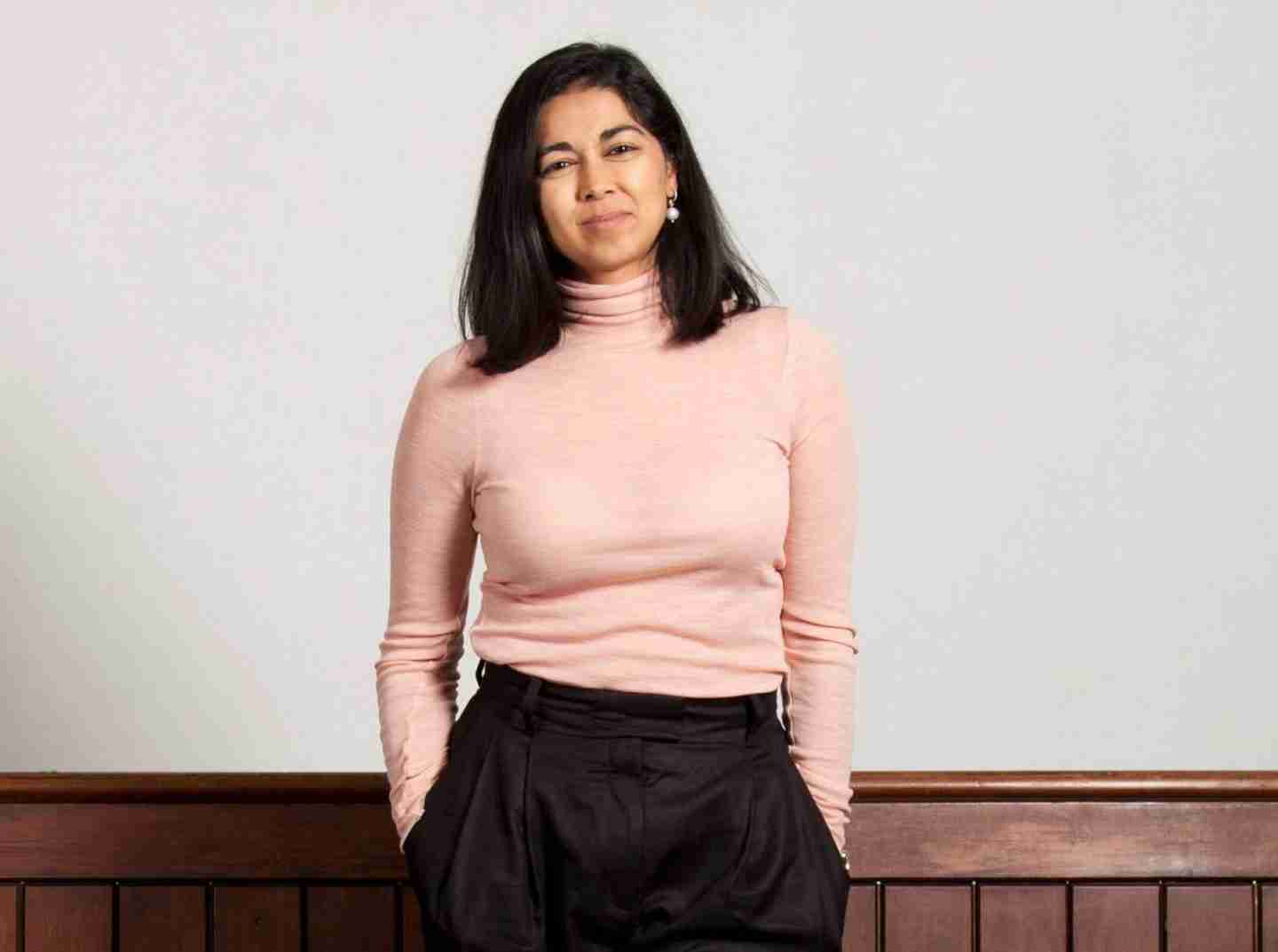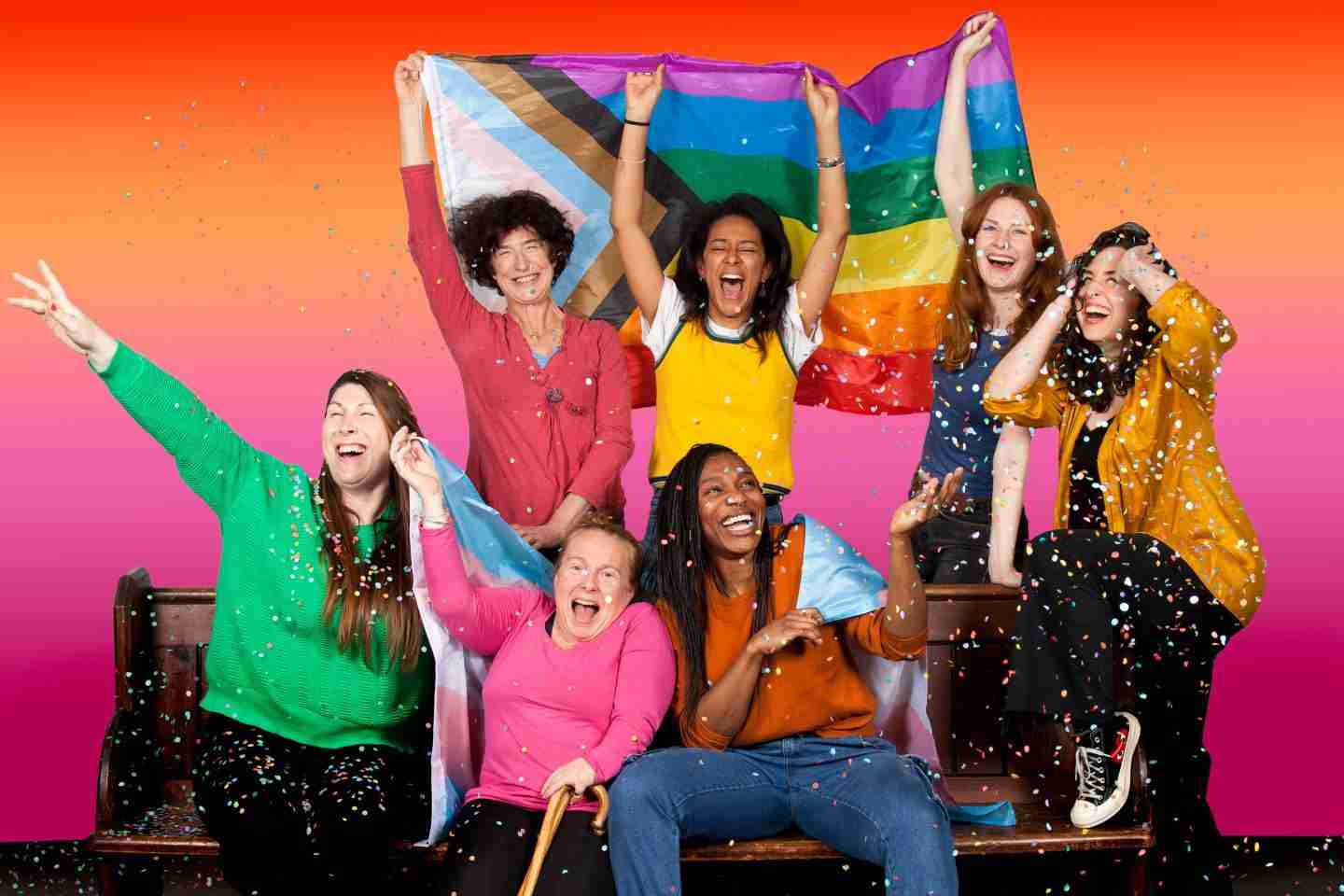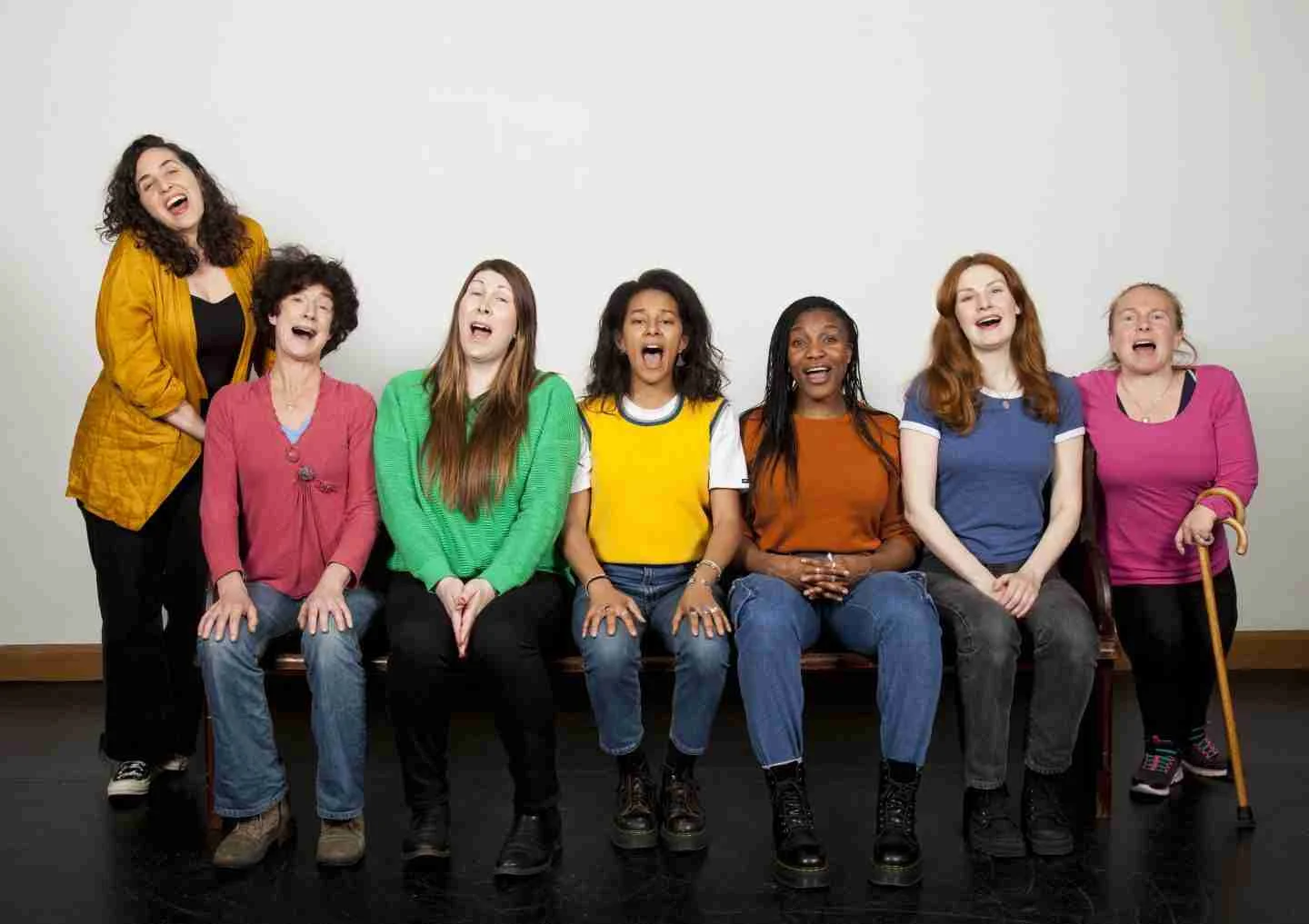
Nonchalant had the pleasure of sitting down with the fantastic, award-winning writer Iman Qureshi. Iman’s new play, ‘The Ministry of Lesbian Affairs’ is premiering at Soho Theatre in May 2022 and promises to be a highlight of this year’s programme.
Iman is an award-winning writer for stage, screen and radio, with her last play, ‘The Funeral Director’, winning the 2018 Papatango Prize and now being adapted for TV. Born in Pakistan, raised in Saudi Arabia, educated in Edinburgh and now living in London, Iman’s work delves into the stories of under-represented groups, and the complexities bought about by intersectionality.
‘The Ministry of Lesbian Affairs’ brings together a collection of queer woman in a community choir. The play follows their journey in preparing to audition to sing at Pride. Seven characters, representing a cross section of queer society are looking for a sense of community and a chance to sing!
The play also explores deeper questions about lesbian visibility in mainstream media and society. Iman has been working with super-talented director Hannah Hauer-King to bring her story to the West End (read our interview with Hannah Hauer-King ). It’s fair to say we at Nonchalant Magazine cannot wait to see it!
Enjoy our interview with Iman below.

What’s your favourite thing about being a writer?
My favourite thing about writing is using characters to tell stories that don’t often get told to challenge the audience’s perception of that individual’s lived experience. Hopefully by doing this through theatre I can influence positive change more broadly in society. I’ve learned that when we try to influence people’s perception by lecturing them they just put up barriers. But on stage people can relate to a character, and engage or empathise with their journey, through humour, love and kindness.
How did you get into writing?
Growing up, I kind of thought that plays were only written by dead people and arriving at university I thought that if I could forge a career in writing, it would be writing novels. The concept of being a modern day playwriter was quite strange to me and I hadn’t imagined that it could be a career option. But when I was studying in Edinburgh, I spent a lot of time enjoying the theatre scene. Seeing phenomenal writers such as Ella Hickson making a name for herself in this scene was really inspiring and changed my perspective.
Tell us more about the writing process for ‘The Ministry of Lesbian Affairs’
I started writing a dialogue that a group of queer women could be having within a community space. As more of the conversation developed, some voices and ideas started to emerge and I shaped these into a whole host of characters. As we worked on the script we began to focus more on just seven characters, which the play comes to focus on.
It does sometimes feels like a lot of responsibility, to write an inclusive play that queer woman will relate to – It would be impossible to summarise everyone’s experience in just these seven characters. Everyone from the community is so different and there are so few books/plays/movies/television shows written that tell the stories of queer women. In particular, the parts of their stories that aren’t just about them coming out and that don’t focus entirely on their sexuality.
What would your ideal queer community space look like?
If I wasn’t a writer, I would love to run a cafe for queer women, that serves great coffee and food (vegan/veggie obviously!). This would be a place where people can come, work, meet and talk. I imagine it as a place that hosts events in the evening, for all sorts of different interests, including live music performances and poetry. The space would be safe and inclusive, where woman can meet up and date without being hassled but also that isn’t focused solely around drinking alcohol.
During the play’s run, I would love for the SoHo Theatre to feel a little like that. For it to be transformed into a manifestation of that space: where friends can meet, queer women can bring their dates, or their mum’s. For them to enjoy a production written for them, and to be able to laugh at the in-jokes that might not necessarily be picked up on by straight members of the audience.
Do you feel representation is getting better?
If I’m totally honestly, no I don’t think so, we still have a such a long way to go. We are so lucky to have found a truly amazing cast for The Ministry of Lesbian Affairs but it was still difficult to find a pool of options for certain roles. There simply aren’t enough actors from a diverse range of backgrounds, cultures and lived experiences.
I’m sure that pandemic has compounded this further with lots of creatives moving into different industries. Equally, it feels like a lot of the basic provisions that are lacking and these just make it so difficult for people. For example, how is a wheelchair-user in London supposed to make it to rehearsals or auditions, if buses and trains don’t consistently have working wheelchair ramps on board and theatre stages are not easily accessible? Luckily, SoHo theatre have been amazing.
How do you find handing your writing over to others to be produced?
I love it! I love seeing how other people see different things in the writing and their interpretation. Whether that’s how a director or set designer imagines a space. Or how an actor delivers a line with amazing comic effect, when I hadn’t maybe written it with the intention of being a joke. The life that others breath into the work and the collaborative process that brings that play to stage is truly incredible.
I did have non-negotiables agreed for the casting process to ensure the LGBTQ+ community were well-represented. It was important to me that wherever possible the actor shares the core experience of the characters they are portraying. Then some practical things like being able to sing…I mean, it’s a play about a choir.

Who are your Queer Icons?
My Queer icons are Lorraine Hansberry & James Baldwin. They were both so talented and bold and unapologetically themselves, working and living as black and queer writers in the 1950s New York City. They were friends, and I would love to just to be a fly on the wall during their dinner conversation and hear their perspectives on modern day life.
(For context, Lorraine Hansberry was the first black female playwright to have her play performed on Broadway. James Baldwin was a black writer and activist, who wrote ‘Giovanni’s Room’ and ‘Go Tell it on the Mountain’. Both were writing in the period pre-Civil Rights movement, pre Gay-Liberation.
What else are you working on?
A whole array of exciting things. Currently I’m working on TV adaptions for the Funeral Director and to turn The Ministry of Lesbian Affairs for TV, and lots more theatre.
The Ministry of Lesbian Affairs is running at the Soho theatre from 6 May to 11 June. Book your tickets now.
Thanks for reading! If you enjoyed this, check out other recent interviews with lesbian icons.
Team Nonchalant x x


